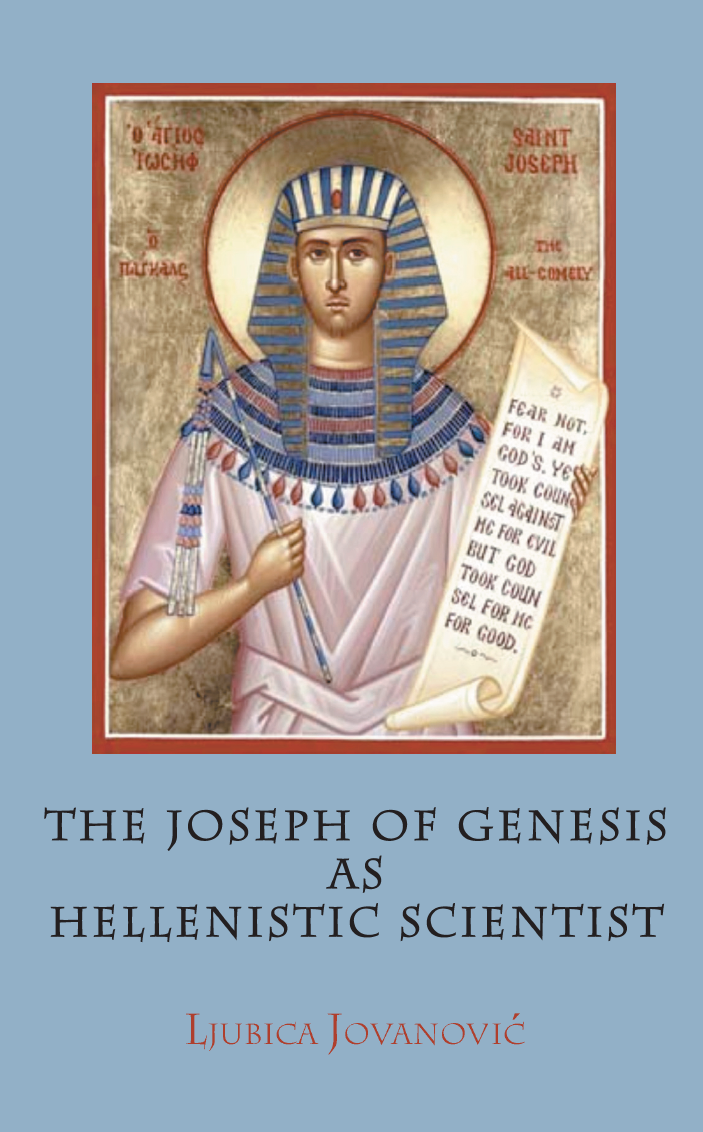The Joseph of Genesis as Hellenistic Scientist
Published: July 2013
£75.00
To today's confrontations between religion and science Jovanovic contrasts the vibrant collaboration that characterizes Jewish, Christian, and Islamic beginnings. Designation of the patriarch Joseph as both a dream interpreter and a diviner (Gen. 44.4, 15) is a specific example of biblical appropriation of the ancient Mediterranean understanding of cup divination and dream interpretation as among the scientific activities of its social, spiritual and academic elite.
Jovanovic argues that the image of Joseph as a Hellenistic scientist nourished the popularity of early Jewish and Christian literature on Joseph. The works of Josephus and Philo, Rabbinic midrashim, and the newly discovered The Ethiopic Story of Joseph, as well as Jubilees, The Testaments of the Twelve Patriarchs and Joseph and Aseneth, hold that Joseph's profession was that of a scientist of vision. The interpretation of the symbolic images in dreams and cup divination was a scientific method of communication with the divine and of prediction of the future, which Jovanovic calls 'revelation by visual effects'.
Joseph's image as an Egyptian academic provoked varied responses in Hellenistic Jewish circles. The dismay expressed by Jubilees and Philo arose from Joseph's perceived betrayal of religious and traditional values. The acclamation of Josephus and The Ethiopic Story of Joseph demonstrates that a number of Hellenistic Jews believed that their creative integration into the vibrant Hellenistic culture could be successful and deepen their own Jewish identity.
While previous scholarship has focused on representations of Joseph either as an ethical model or as a type of Christ, this is the first major work that explores the image of Joseph as an ancient scholar and spiritual expert.
The Joseph of Genesis as Hellenistic Scientist
£75.00
To today's confrontations between religion and science Jovanovic contrasts the vibrant collaboration that characterizes Jewish, Christian, and Islamic beginnings. Designation of the patriarch Joseph as both a dream interpreter and a diviner (Gen. 44.4, 15) is a specific example of biblical appropriation of the ancient Mediterranean understanding of cup divination and dream interpretation as among the scientific activities of its social, spiritual and academic elite.
Jovanovic argues that the image of Joseph as a Hellenistic scientist nourished the popularity of early Jewish and Christian literature on Joseph. The works of Josephus and Philo, Rabbinic midrashim, and the newly discovered The Ethiopic Story of Joseph, as well as Jubilees, The Testaments of the Twelve Patriarchs and Joseph and Aseneth, hold that Joseph's profession was that of a scientist of vision. The interpretation of the symbolic images in dreams and cup divination was a scientific method of communication with the divine and of prediction of the future, which Jovanovic calls 'revelation by visual effects'.
Joseph's image as an Egyptian academic provoked varied responses in Hellenistic Jewish circles. The dismay expressed by Jubilees and Philo arose from Joseph's perceived betrayal of religious and traditional values. The acclamation of Josephus and The Ethiopic Story of Joseph demonstrates that a number of Hellenistic Jews believed that their creative integration into the vibrant Hellenistic culture could be successful and deepen their own Jewish identity.
While previous scholarship has focused on representations of Joseph either as an ethical model or as a type of Christ, this is the first major work that explores the image of Joseph as an ancient scholar and spiritual expert.


